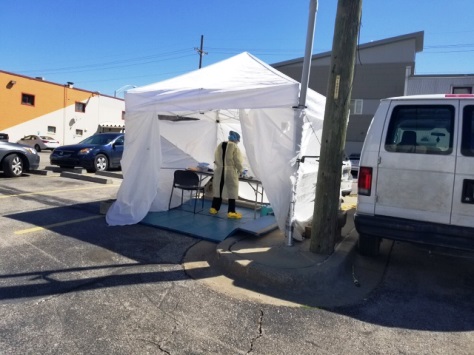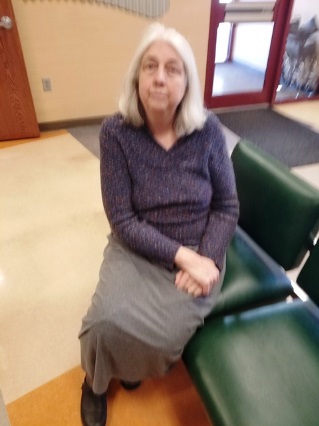Interest-free loan program announced for hospitality industry; labor office swamped with 10,000 more unemployment cases this week
State officials tried to reassure Kansas residents, businesses and workers at a news conference Friday morning, announcing a new interest-free loan program for the hospitality industry, and urging workers and businesses to file unemployment applications and paperwork online.
Gov. Laura Kelly said Kansas expects to qualify for disaster loans from the Small Business Administration. That would provide low-interest disaster loans of up to $2 million to small businesses suffering economic injury because of COVID-19, she said.
The loans, available from the SBA, would keep Kansas businesses afloat, if they are unable to receive assistance elsewhere.
Gov. Kelly said state government will use every tool possible to assist businesses and workers.
Gov. Kelly said a hospitality emergency relief (HIRE) fund is being implemented to provide speedy assistance to hospitality businesses whose operations are being disrupted and need support now.
Gov. Kelly said she had signed a bipartisan bill on Thursday that extended unemployment benefits from 16 weeks to 26 weeks for Kansas residents who are eligible for unemployment.
According to officials, about 762 hotels and accommodation businesses, and nearly 10,000 food establishments in Kansas are faced with difficult economic times.
Kansas Commerce Secretary David Toland said they worked through the weekend to provide documentation showing substantial injury had occurred to businesses from the coronavirus, in order to apply for disaster relief, and they hoped the state would be approved on Friday or Saturday. They applied for all 105 counties in Kansas. The low-interest loans, up to a $2 million total, would be for businesses suffering from substantial injury, he said.
The state has identified $6.3 million in federal Community Development Block Grant funds in 37 Kansas communities that could be used for revolving loan programs in those communities, he said. The state has reduced the time to process these loans, and might be able to issue working capital loans in as little as two days, he said.
The HIRE fund would make short-term loans to hospitality firms with 100 or fewer employees, to pay for payroll, utility bills, commercial loans, accounts payable, inventory and more, he said. It is intended to be a bridge loan to help firms survive, he said. The maximum loan amount would be $20,000 with no principal and interest due until four months after the loan closes.
About $5 million is being made available to establish the fund, he said, with decisions made within a few days. Four counties in the Kansas City area, defined by the department as Johnson, Wyandotte, Shawnee and Douglas counties, could receive a combined total of $2 million.
More information will be available at the Commerce Department website, www.kansascommerce.gov/ and https://www.kansascommerce.gov/covid-19-response/hospitality-industry-relief-emergency-hire-fund/?fbclid=IwAR1eh1WVxCwZZ_qHMgPHJOPzyiPiK61YMIHT_6w_cEYRFgYbK5jwbkteG6s.
Chuck Magerl, owner of Free State Brewing in Lawrence, spoke at the news conference, saying the stunning downturn has taken an immense toll on restaurants, coffee shops, and other establishments including lodging.
Kansas Secretary of Labor Delia Garcia said there were 1,296 unemployment insurance claims last week, and 11,355 this week, an increase of 10,059 in just the first week.
“We are in uncharted waters right now,” she said.
She said it is important for workers and employers to use the labor department’s website, www.dol.ks.gov/, or www.getkansasbenefits.gov/, as much as possible. The state office is swamped with phone calls, wait times are long and getting information online will speed up the process, she said. The phone lines should be reserved for those who are not able to use the website or for non-English speakers, she said.
Many workers that are unemployed or working reduced hours may be eligible for unemployment insurance benefits for 36 weeks, she said. The requirements are less stringent at this time.
Unemployed workers may receive a maximum of $488 and a minimum of $122, she said.
Kansas Banking Commissioner David Herndon reminded people that their money is safer in banks that are insured by the FDIC, which many Kansas banks are, than it is in cash in their homes. The banks have federal insurance up to $250,000 per account.
While there are no reported instances of people making large cash withdrawals, he said some people have called banks and asked if it is available, and some have taken out more than usual.
In answer to a question, Gov. Kelly said they are looking at all deadlines, and will be modifying them where they need to.
To view the news conference on Facebook, visit https://www.facebook.com/GovLauraKelly/videos/207168857203293/.


